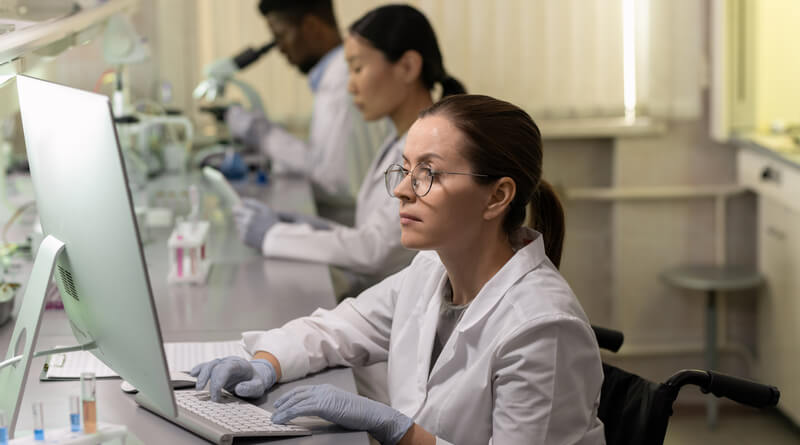Forensic Nurses: What They Do and How They Contribute to Public Well-Being

While most of the public is aware of nurses and forensic professionals, far fewer are aware that forensic nurses play a key role in healthcare and the legal system. These professionals provide specialized care to victims of crimes and take a unique approach to healthcare.
Those interested in both legal processes and the nuances of the healthcare system can bolster their understanding of these topics by gaining more perspective on these crucial professionals.
Here is a breakdown of what forensic nurses do and how they contribute to public well-being.
The Forensic Nurse’s Role
Before understanding their impact, it’s important to have a clear understanding of the forensic nurse role itself.
In essence, these professionals are specialized nurses who take a specific approach to understanding and treating their patients. Forensic processes revolve around deducing insights through the method of scientific observation. This being the case, forensic nurses take a scientific approach to treating their patients.
Typically, forensic nurses treat victims of physical abuse and sexual assault. Additionally, they may also treat and assess patients such as children or older adults who legal or law enforcement professionals believe may be the victims of abuse. Beyond treating victims of crimes who are alive, forensic nurses sometimes investigate patients who have died under suspicious circumstances in order to glean insights that can be used in the legal system as evidence.
In addition to helping heal their patients, these nurses are also tasked with collecting evidence that can be utilized in legal processes. In this way, their professional efforts toe the line between taking a medical approach and taking a legal approach.
How Forensic Nurses Impact Public Well-Being
While forensic nurses have an undeniably large impact on the lives of the specific patients they treat and assess, they also have a significant impact on public health. To understand why, it’s important to understand one of the most critical public health issues being dealt with today.
Specifically, violence is a huge problem that adversely affects countless individuals each and every day. As a result, engaging in efforts to minimize the amount of violence in the public has a critical impact on public health as a whole.
Fortunately for the public, forensic nurses consistently engage in a variety of measures that mitigate the amount of violence in society.
One incredibly important way they do this is by helping to collect evidence that can be used to convict violent criminals. Without being able to prove that these criminals committed acts of violence, they would be free to roam the streets and harm other innocent individuals.
In this way, the work of forensic nurses plays a key role in keeping violent criminals accountable for their actions and making them less likely to commit similar acts.
Another significant way that forensic nurses bolster public well-being is by advocating for victims of violence and sexual assault and helping them and their loved ones heal. By aiding these victims and bringing more awareness to these crimes, more changes can be made to make the public safer from violence. As such, the work that forensic nurses engage in to advocate for victims of violent crimes helps mitigate its impact on public well-being.
Beyond putting violent criminals behind bars and advocating for victims, these admirable professionals also help historically marginalized people achieve the justice they deserve. Sadly, people from specific groups and classes have traditionally experienced higher levels of violent crimes.
By helping these individuals receive the care they need and the justice they deserve, forensic nurse specialists help bolster social justice for marginalized people.
Becoming a Forensic Nurse
Given the amazing ways that forensic nurses help individuals and society as a whole, it comes as no surprise that this role is rising in popularity. However, many aspiring professionals interested in the role are unaware of how to achieve their career goals.
Fortunately, having a little bit of guidance can make it far easier to pursue one’s goal of becoming a forensic nurse.
To become a forensic nurse, one will have to go through a number of key steps. However, the path to stepping into this role can look different for each individual.
For professionals who are already working as registered nurses, obtaining a master’s degree in forensic nursing is a great way to become qualified to work in the field. While some roles will hire nurses without this degree, they often require one to have forensic experience before stepping into a forensic nurse role.
Other educational options include obtaining a specialized certificate. There are a wide variety of these types of certificates that can be useful for forensic nurses ranging from those that prepare one to collect evidence from dead bodies to those that train one to treat victims of sexual abuse.
Ultimately, how one becomes a forensic nurse will depend on where one is in their educational and professional career.
Forensic Nurses Play a Key Role in Mitigating Violence and Bolstering Public Well-Being
Though many people are unaware of the amazing work that they do, forensic nurses have a specialized skillset that allows them to positively impact both the medical and legal fields. From helping put criminals behind bars to raising awareness about violent crimes, these professionals are making the world a safer place in critical ways.
As time goes on and society continues to evolve, many are hopeful that the field of forensic nursing and its impact on the public will continue to grow.









Leave a Reply
Want to join the discussion?Feel free to contribute!